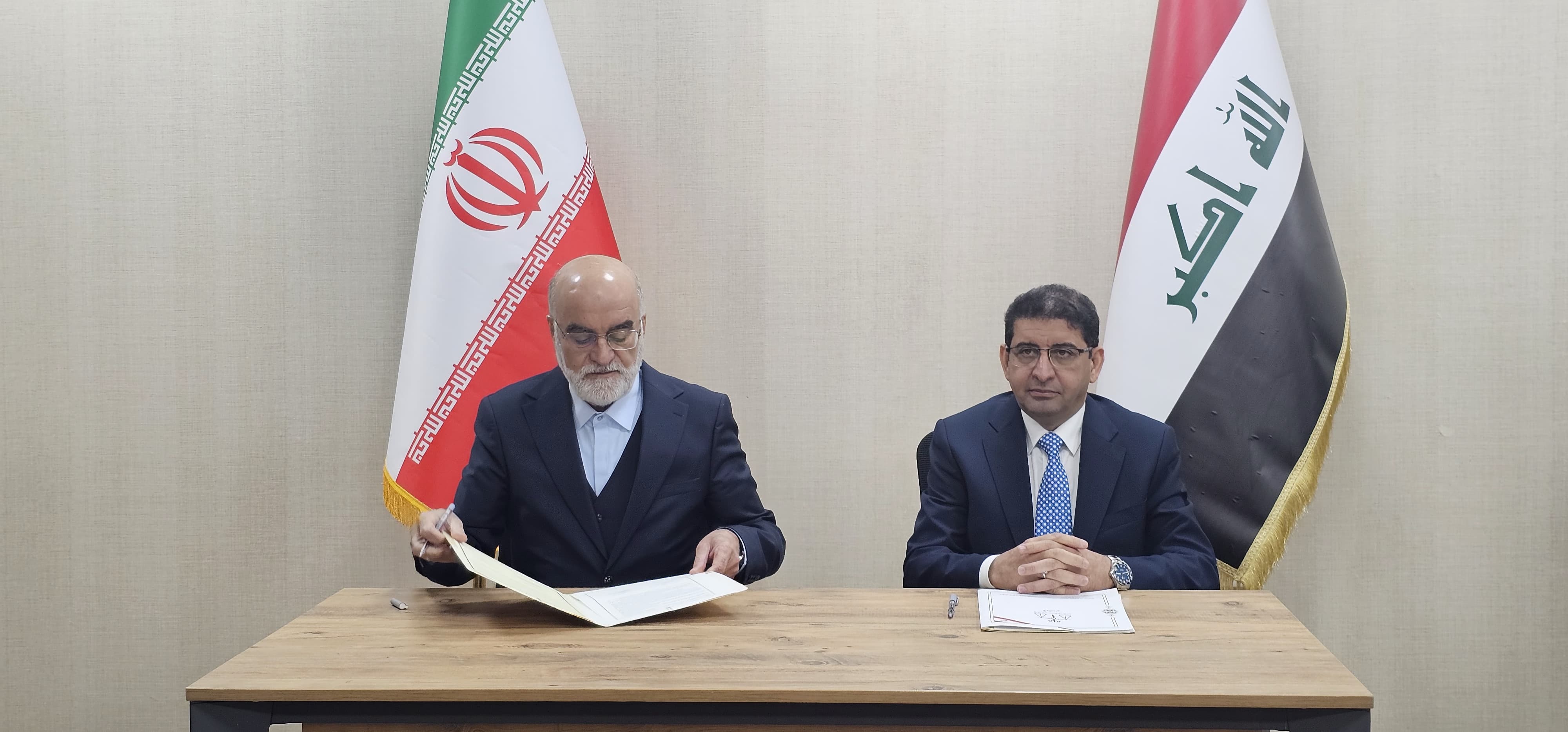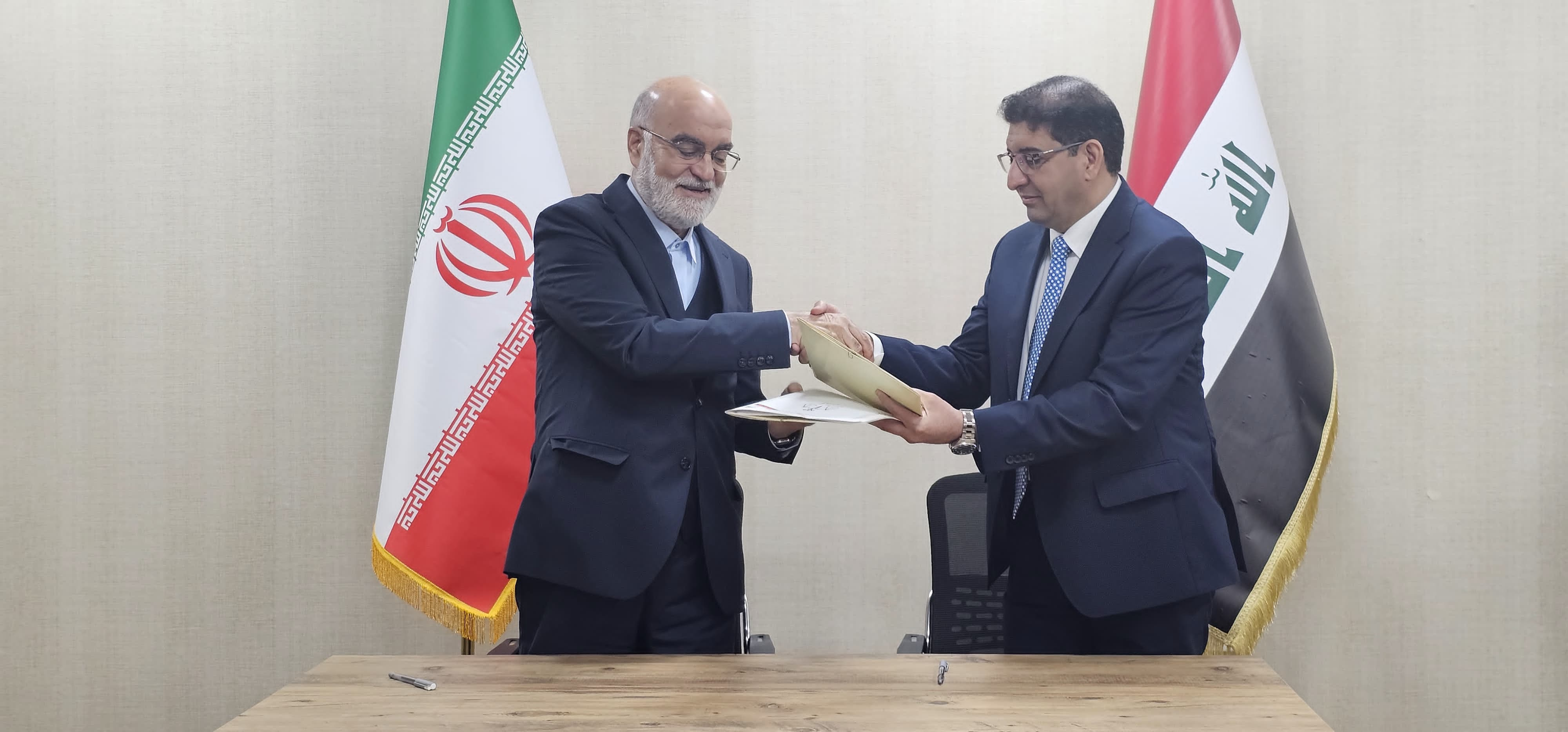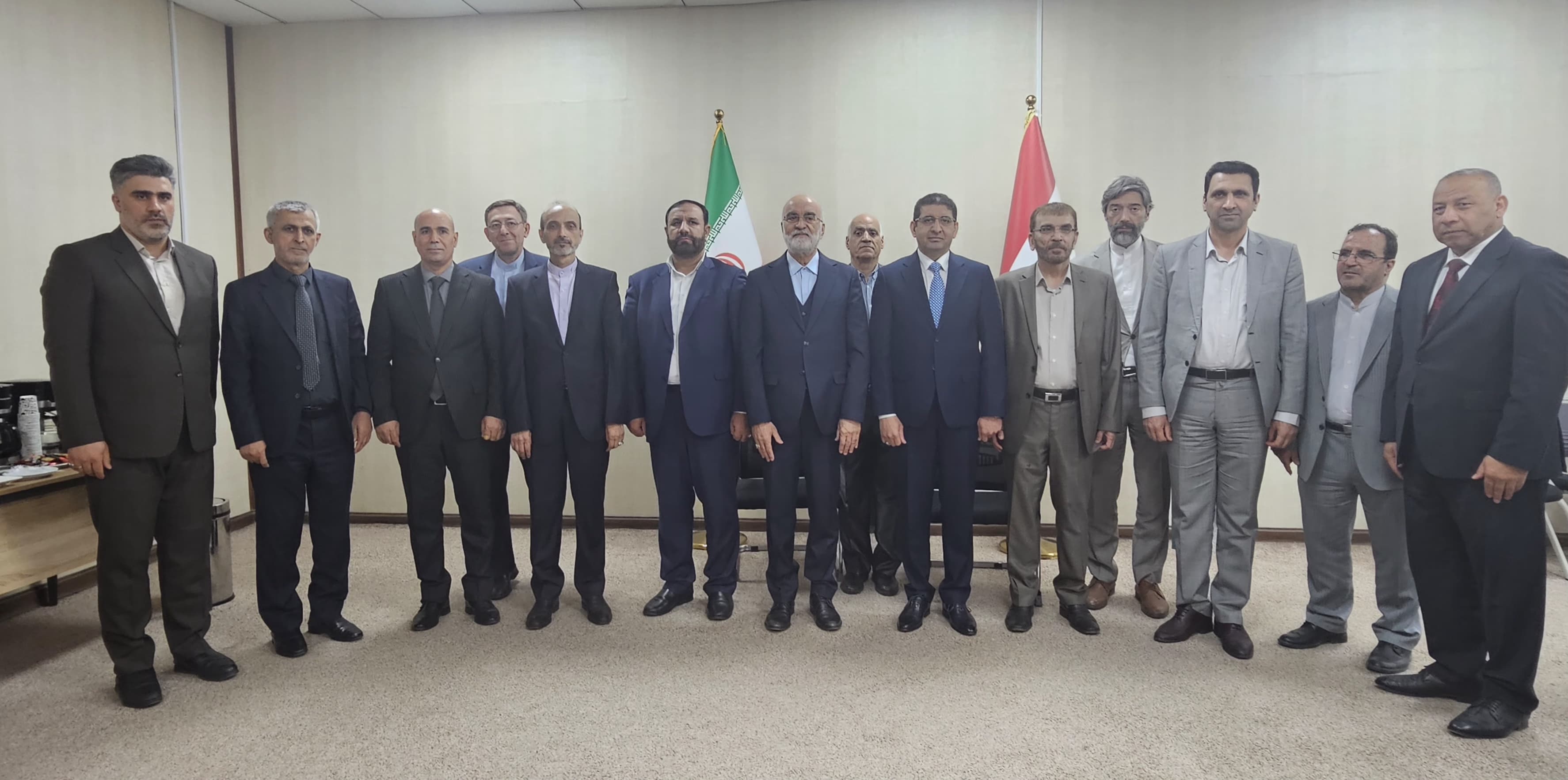The fourth meeting of the Joint Judicial Committee on Counter-Terrorism was held in Baghdad, chaired by the Vice President of the Judiciary for International Affairs and the Head of the Iraqi Judicial Supervision Organization.
HCHR_The fourth meeting of the Joint Judicial Committee on Counter-Terrorism was held in Baghdad today, on Thursday, May 1, 2025, with the participation of the judicial delegations of Iran and Iraq, chaired by Naser Seraj, the Vice President of the Judiciary for International Affairs and the Secretary General of the High Council for Human Rights of the Islamic Republic of Iran, and Judge Laith Jabr Hamzeh, the Head of the Judicial Supervision Organization and the member of the Judicial Supreme Council of the Republic of Iraq.

During this round of negotiations, the parties discussed the latest international developments regarding the fight against terrorism and their impact on security and peace in the region, the cases currently under investigation related to terrorism and terrorist organizations, including the MKO, ISIS, and Takfiri groups including Komala, Democrat, PJAK, Khabat, and Pak, and the parties' determination to continue the fight against terrorism in all its forms and to work to strengthen the security of the two countries and implement the matters covered by judicial understandings between the two countries.

Another focus of this meeting was condemnation of the Zionist regime’s attack on southern Lebanon, which led to the martyrdom of Hezbollah leaders, including martyr Sayyed Hassan Nasrallah, as well as the martyrdom of martyr Ismail Haniyeh in Tehran.
After reviewing the joint minutes signed by the heads of delegations of the two countries, the parties reached an understanding on the following:
1. Agreement on continuing necessary measures to uncover terrorist crimes, pursue their perpetrators, take all legal measures, issue judicial rulings, and enforce punishment against the perpetrators, regarding terrorist gangs and groups, especially the affiliates and supporters of the People's Mujahedin-e-Khalq Organization (MKO);
2. Emphasis on the exchange of information regarding the terrorist attack near Baghdad International Airport that led to the martyrdom of the martyr commander Hajj Qassem Soleimani and Abu Mahdi al-Muhandis and their companions, and to follow up on the latest developments in this case;
3. Condemning the massacre of Alawites in Syria, war crimes and genocide against the innocent Palestinian people, the destruction of southern Lebanon by the Zionist regime, and the American aggression and attacks on Yemen;
4. Emphasis on the implementation of the provisions of Article 5 of the legal and judicial cooperation program between the Judicial Supreme Council of the Republic of Iraq and the Judiciary of the Islamic Republic of Iran regarding the exchange of judicial delegations and the exchange of legal information and judicial experiences between the two sides;
5. Emphasis on addressing the problems faced by Iranian pilgrims during the Arbaeen ceremonies and other religious pilgrimages, especially actions that are not considered crimes according to the laws of the Islamic Republic of Iran but are on the list of crimes according to the laws of the Republic of Iraq;
6. Emphasis on the need to activate mechanisms to ensure the inclusion of the provisions of the General Amnesty Law based on the Convict Transfer Agreement between the two countries concluded in 2011 for Iranian convicts in the Republic of Iraq;
7. Emphasis on mutual cooperation in order to exchange information related to the fight against financial and administrative corruption crimes, the extradition of wanted persons, the return of funds and everything related to these crimes;
8.Efforts to intensify joint measures and strengthen cooperation mechanisms in the field of combating narcotics and psychotropic substances and limiting their spread between the two countries;
9.Emphasis on the need to pay special attention to requests for the extradition of perpetrators of terrorist crimes, both accused and convicted, in order to prevent perpetrators of these crimes from escaping punishment;
10.Providing annual statistics on the performance of the special courts of first instance for handling commercial disputes established by nationals of both countries and stating the most important problems and difficulties facing these courts.
